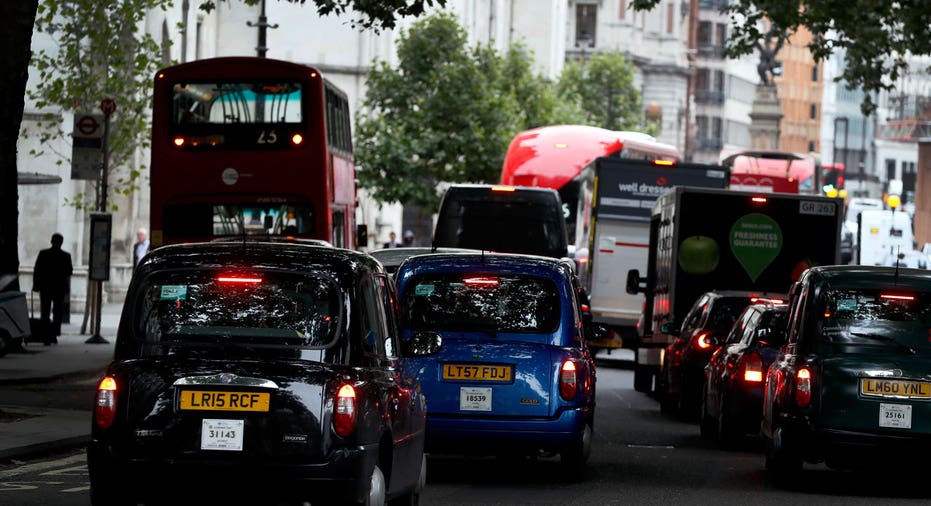Automakers react to U.K.'s ban on gasoline and diesel cars

Updated
Automakers are backing the U.K.’s plan to ban the sale of gasoline and diesel vehicles, but the industry says there’s still a long way to go before electric cars can take over the road.
The U.K. is the second European government in the past month to impose a ban on the traditional internal combustion engine. Like France, the U.K. confirmed on Wednesday that it will ban gasoline- and diesel-powered cars after 2040, seeking to accelerate the shift to electric vehicles. The U.K. and France account for about a third of the automobile market in the European Union.
The move comes as prices for electric vehicles begin to drop. In the U.S., General Motors (NYSE:GM) has begun selling the Chevrolet Bolt, a $37,500 long-range electric car. Tesla (NASDAQ:TSLA) will deliver the first Model 3 electric sedans this month. Volvo recently announced plans to sell only electric and hybrid vehicles after 2019, and Jaguar Land Rover is working on an I-Pace electric crossover.
“We welcome the clarity provided on the transition to a future where electric cars are the norm. Jaguar Land Rover is already working towards the 2040 timetable in moving to autonomous, connected, electric vehicles,” said Jeremy Hicks, U.K. managing director of Jaguar Land Rover.
However, the British automaker cautioned that only 1% of cars currently driven in the U.K. are electric, adding that technological advancements in petrol and diesel engines will continue to play a “key role in controlling carbon emissions” until the ban takes effect.
“While we fully recognise that zero emissions are the future, there are no guarantees that we will get the take-up of electric vehicles at the rate and scale government would like without the appropriate financial incentives and charging infrastructure,” Hicks said.
Ford (NYSE:F) also stressed that current gasoline and diesel cars will power the transition to electric motors.
The U.S. automaker’s next generation of electric vehicles will be on the road by 2020. In the meantime, clean-energy technology available in modern powertrains “will continue to play an important part in keeping cities and businesses across the UK moving,” said Andy Barratt, Ford of Britain’s chairman and managing director.
Ford, a popular brand in the U.K., welcomed the government’s plan and said it “supports the existing trajectory of the industry.”
“We also recognize the importance and value of urban air quality and are working with the Government to take action,” Barratt said.
BMW expects growth in electric demand to accelerate, the German manufacturer’s U.K. unit said in a statement. BMW expects to sell more than 100,000 electrified vehicles worldwide this year, compared to 62,000 in 2016. From 2020, BMW will offer a fully electric option for each of its models.
“We see electric powertrains as the future for our industry as evidenced by the fact that the BMW Group already offers the widest range of electrified vehicles with further electrified models soon to join the line-up,” the company said.
Daimler, the parent company of Mercedes-Benz, aims to generate between 15% and 25% of its worldwide sales from battery-powered vehicles by 2025. The company also plans to offer more than 10 all-electric cars by 2022.
This article was updated on July 27 to include Daimler's electric vehicle plans.



















